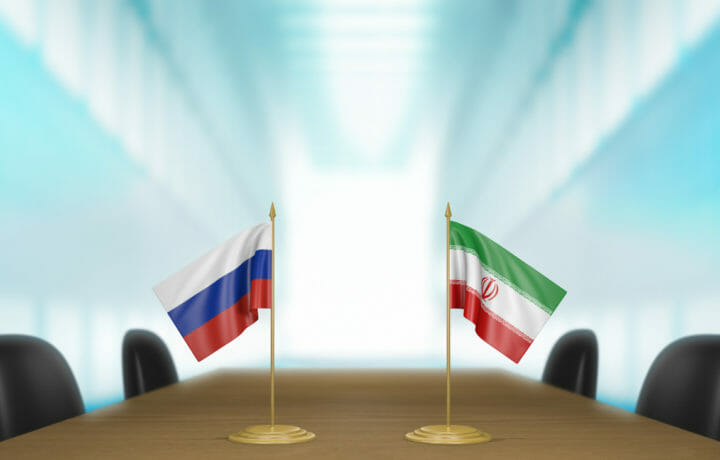Iran is always ready to help a violent tyrant or terrorist in need, from Lebanon to Yemen, and from Gaza to Moscow, Iran revels in living on the wrong side of history. This week the U.S. government announced that Iran was coming to the aid of Russia in their Ukraine campaign of terror. National Security Advisor Jake Sullivan briefed the press that the Iranian government “is preparing to provide Russia with up to several hundred UAVs, including weapons-capable UAVs on an expedited timeline.”
This comes just as Russia is in need of miniaturized air support. The Russians have been struggling to get intelligence and surveillance platforms to their front-line troops, and this move by Iran is meant to aid their tyrannical regional neighbors. Iran and Russia are both in need of economic friends, making this an ideal pairing.
Iran is making this provocative move just as President Biden leaves on a Middle East journey to meet with Israeli and Saudi leaders. Both of those nations are considered enemy territory by the Iranian regime. Biden is likely seeking to change the Israeli and Saudi positions on Russia on this trip and to discuss Iran’s nuclear program. Israel and Saudi Arabia have been reluctant to join the Western economic punishment of Russia over their Ukrainian invasion, but are staunchly against Iranian nuclear capabilities.
The common ground of course for America, Israel and Saudi Arabia of keeping nuclear weapons out of the hands of Iran is an issue that is becoming more serious as Iran and Pakistan are getting closer. The Iranians have been very successful in their drone program and have only been a few steps behind the United States in developing ever more sophisticated and deadly unmanned aircraft or all sizes. They have the scientific ability to borrow technology that already exists and mimic it very well.
Iran is getting more desperate for allies as the U.S. sanctions bite harder, and the idea of a return to the JCPOA become less likely. The Joint Comprehensive Plan of Action (JCPOA) agreement of 2015 was scrapped in 2018. The concept of the JCPOA plan was to slow the Iranian nuclear program in exchange for an ease of economic sanctions. Europe was heavily involved in starting this process and have tried to see if the current White House administration would return to it at a meeting in Doha this June.
The reports from the recent indirect diplomacy in Doha are not good for Iran. As an anonymous senior U.S. official told Reuters in late June “The prospects for a deal after Doha are worse than they were before Doha and they will be getting worse by the day…You could describe Doha at best as treading water, at worst as moving backwards. But at this point treading water is for all practical purposes moving backwards.”
Another concern for Iran and their supporters is that President Biden traveled to the Middle East much later than most previous presidents, showing the decrease in interest in the region. Iran needs the United States as an enemy to unite their own people and distract them from flawed governance at home.
The two nations that President Biden is visiting also are a cause for alarm for Iran. It was believed that Biden would sustain his cold relations with Saudis, and avoid meeting with the Crown Prince of Saudi Arabia due to his ties to human rights violations in the death of columnist Jamal Khashoggi. Those self-imposed restrictions seem to be gone from the Biden team; some say high gas prices might be part of the new calculus.
Similarly, most thought that the White House would to keep things cool with the Israeli government, but that doesn’t seem to be the case with their joint pledge to deny Iran nuclear weapons. While the they’re not seeking a grand policy for resolving Israeli and Palestinian issues, they will likely settle for deeper ties and security cooperation between Saudi Arabia and Israel.
As the White House downplays expectations, his op-ed said, “I’ll travel to the Middle East to start a new and more promising chapter of America’s engagement there.” Iran is certainly watching how Israel and the U.S. lock arms against them. On his journey President Biden met with Israeli government caretaker Prime Minister Yair Lapid in Jerusalem, Palestinian Authority President Mahmoud Abbas in the West Bank, and also with the Gulf Cooperation Council to talk energy security in Jeddah, before meeting with Saudi King Salman where he may also have a public or quiet meeting with the man controlling the nation, Crown Prince Mohammed bin Salman, the son of the King.
With the JCPOA on life-support and possible better relations between the U.S., Saudi Arabia, and Israel, we can expect more dangerous behavior from Iran in the near term. Arming Russia with drones may become the least of Biden’s worries.



